This groundbreaking work by Roxanne Dunbar-Ortiz challenges traditional U.S. historical narratives‚ offering a powerful Indigenous perspective on colonialism‚ resistance‚ and survival. A New York Times bestseller‚ it has inspired widespread discussion and education‚ including an HBO adaptation.
1.1 Overview of the Book and Its Significance
An Indigenous Peoples’ History of the United States by Roxanne Dunbar-Ortiz offers a transformative narrative‚ challenging traditional U.S. history by centering Indigenous voices. This New York Times bestseller and basis for the HBO series Exterminate All the Brutes reveals the centuries-long struggle of Native Americans against colonialism and imperialism‚ providing a vital framework for understanding the nation’s past and its ongoing impacts today.
1.2 The Author: Roxanne Dunbar-Ortiz and Her Contributions
Roxanne Dunbar-Ortiz‚ a renowned historian and activist‚ has reshaped American historical discourse with her work. Her book challenges traditional narratives by foregrounding Indigenous perspectives‚ offering a critical examination of colonialism and its legacy. A scholar and advocate‚ Dunbar-Ortiz’s contributions have significantly influenced both academic and public understanding of Indigenous histories and struggles‚ making her a pivotal voice in contemporary historical scholarship.
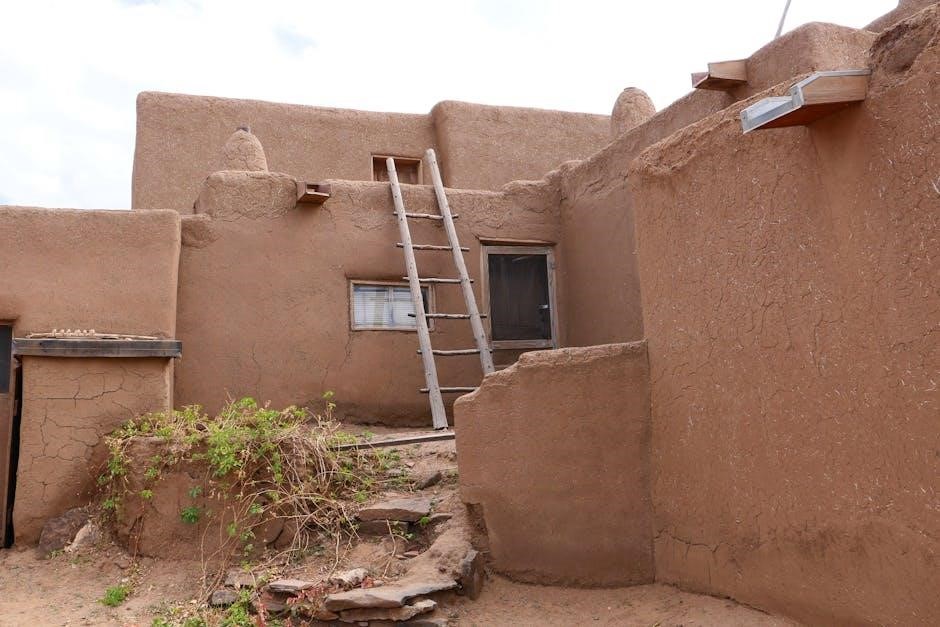
Historical Context: Indigenous Peoples Before European Colonization
Over 500 distinct Indigenous nations thrived in the United States before European colonization‚ with a population of around 15 million. Their sophisticated societies flourished through advanced agriculture‚ governance‚ and cultural practices‚ laying the foundation for the rich diversity of Native American life.
2.1 The Diversity of Indigenous Cultures and Nations
Indigenous cultures across the Americas were remarkably diverse‚ comprising over 500 distinct nations. Each had unique languages‚ traditions‚ and governance systems‚ reflecting their adaptation to varied environments. From the agricultural communities of the Mississippi River Valley to the nomadic tribes of the Great Plains‚ this diversity underscored the complexity and richness of Native American societies before European contact.
2.2 Pre-Columbian Population and Ways of Life
Before European colonization‚ an estimated 15 million Indigenous people inhabited the Americas‚ living in sophisticated societies. They practiced advanced agriculture‚ traded extensively‚ and developed complex social structures. Their ways of life were deeply connected to the land‚ emphasizing sustainability and communal well-being‚ which contrasted sharply with the resource exploitation that followed colonization.
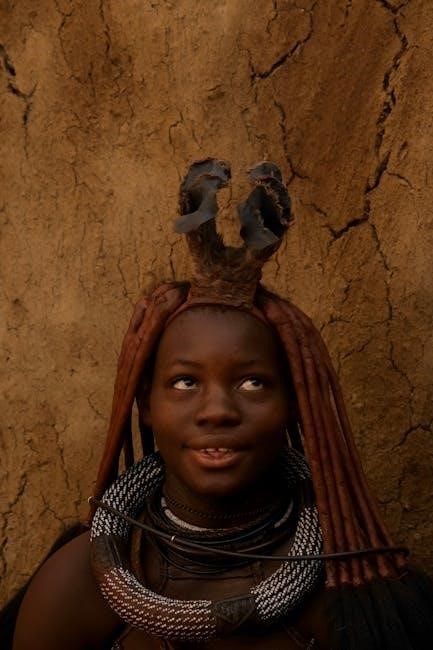
The Impact of European Colonization
European colonization brought genocide‚ land theft‚ and cultural destruction to Indigenous peoples‚ reshaping their worlds forever. Resistance and resilience defined their survival amid immense oppression.
3.1 The Doctrine of Discovery and Its Role in Colonization
The Doctrine of Discovery‚ a legal framework rooted in European Christianity‚ justified the taking of Indigenous lands. It deemed non-Christian territories open to conquest‚ stripping Native peoples of sovereignty and enabling colonial powers to assert dominion over their lands‚ resources‚ and lives‚ laying the foundation for centuries of displacement and oppression.
3.2 Genocide‚ Displacement‚ and Resistance
The colonization of the Americas was marked by widespread genocide‚ forced relocation‚ and cultural erasure. Indigenous populations faced massacres‚ enslavement‚ and the destruction of their livelihoods. Despite this brutality‚ Native peoples consistently resisted‚ employing strategies like armed conflict‚ diplomatic negotiations‚ and cultural preservation to survive. Their resilience challenged the colonial regime‚ even as their histories were often erased from dominant narratives of U.S. expansion.
Indigenous Resistance and Survival Strategies
Indigenous peoples employed diverse resistance strategies‚ including armed resistance‚ alliances‚ and cultural preservation‚ to counter U.S. expansion and maintain their sovereignty and way of life.
4.1 Active Resistance Against U.S. Expansion
Indigenous nations actively resisted U.S. expansion through armed conflicts‚ strategic alliances‚ and diplomatic efforts. Leaders like Geronimo and Sitting Bull symbolized defiance‚ while others navigated treaties to protect sovereignty. Despite overwhelming odds‚ Native peoples fought tirelessly to preserve their lands and cultures‚ leaving a legacy of resilience and resistance against colonial oppression.
4.2 Cultural Preservation and Adaptation
Indigenous peoples employed various strategies to preserve their cultures amid colonization. They absorbed Christianity into existing practices‚ adopted colonizers’ languages‚ and intermarried with settlers. Oral traditions‚ art‚ and spiritual practices were vital in maintaining identity. These efforts ensured cultural survival‚ blending resilience with adaptation‚ allowing Indigenous communities to retain their heritage despite oppressive systems. Their legacy endures as a testament to enduring cultural strength.

Key Historical Events from Indigenous Perspectives
Events like the Trail of Tears and forced relocations highlight the brutal displacement of Indigenous peoples‚ reshaping their worlds forever and challenging traditional historical narratives.
5.1 The Trail of Tears and Forced Relocation
The Trail of Tears‚ a devastating forced relocation‚ stands as a symbol of U.S. colonialism. Thousands of Indigenous peoples were forcibly removed from ancestral lands‚ suffering immense hardship‚ disease‚ and death. This tragic event‚ part of broader Indian Removal policies‚ profoundly impacted Native communities‚ erasing cultures and identities while shaping the U.S. as a settler-colonial state.
5.2 The Role of Indigenous Peoples in U.S. Wars
Indigenous peoples played complex roles in U.S. wars‚ from resisting expansion to allying with colonial powers. Their strategic knowledge and resilience were crucial‚ yet their contributions were often exploited. Wars like the Seminole Wars highlight their fierce resistance‚ while others fought alongside the U.S. military. Their involvement shaped both their survival and the nation’s identity‚ often at great cost to their communities and sovereignty.
Indigenous Peoples in Modern America
Today‚ over 500 federally recognized Indigenous nations and nearly three million people face ongoing struggles‚ yet thrive through activism and cultural preservation‚ honoring their resilience and heritage.
6.1 Current Struggles and Activism
Indigenous peoples in modern America face systemic challenges‚ including land dispossession and environmental threats. Activism has surged‚ with movements like Standing Rock protests and advocacy for Indigenous Peoples’ Day. These efforts highlight resistance and resilience‚ emphasizing cultural preservation and rights. Education and policy reform are central to their fight for justice and recognition of historical injustices.
6.2 The Importance of Indigenous Peoples’ Day
Indigenous Peoples’ Day honors the histories and cultures of Native American communities‚ countering the harmful legacy of Columbus Day. It fosters reconciliation by acknowledging past injustices and celebrating Indigenous resilience. Growing recognition of this day reflects a shift toward inclusivity and justice‚ promoting awareness of Indigenous contributions and struggles. It serves as a step toward healing and equitable representation in American society.
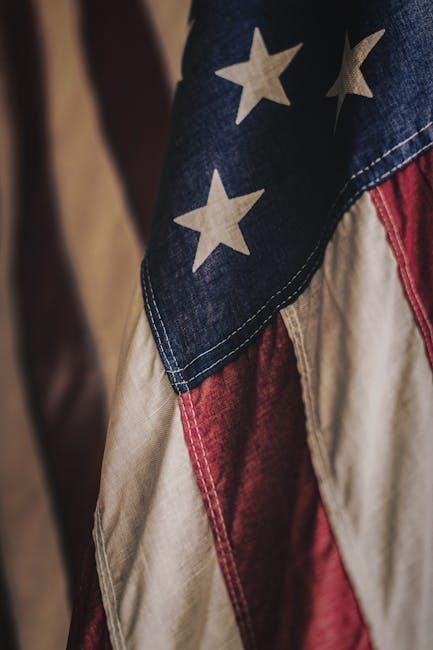
The Legacy of Settler Colonialism
The legacy of settler colonialism in the U.S. is marked by historical trauma‚ cultural erasure‚ and systemic oppression‚ perpetuating disparities faced by Indigenous communities today.
7.1 The Ongoing Effects of Historical Trauma
Historical trauma stemming from genocide‚ displacement‚ and cultural suppression continues to impact Indigenous communities‚ manifesting in intergenerational health issues‚ social disparities‚ and cultural disconnection. These effects are deeply rooted in the unresolved injustices of settler colonialism‚ perpetuating cycles of inequality and marginalization that persist today.
7.2 Indigenous Rights and Modern Policy
Modern policy continues to grapple with Indigenous rights‚ addressing issues like federal recognition‚ land restitution‚ and self-governance. Efforts to revitalize Indigenous languages and cultural practices are ongoing‚ while international advocacy pushes for global recognition of Indigenous rights‚ emphasizing the need for equitable policies that address historical injustices and promote sovereignty.
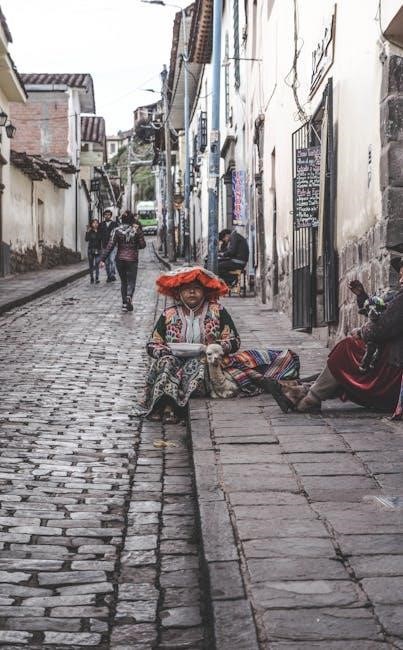
Education and Revising U.S. History Narratives
Roxanne Dunbar-Ortiz’s work challenges traditional narratives‚ emphasizing the need for inclusive education that reflects Indigenous perspectives and histories‚ fostering a more accurate understanding of U.S. history.
8.1 The Role of Education in Shaping Historical Perspectives
Education plays a pivotal role in shaping historical narratives by either excluding or including diverse voices. Traditional U.S. curricula often omit Indigenous histories‚ perpetuating colonial myths. Revising these narratives ensures a more inclusive understanding‚ fostering empathy and challenging dominant perspectives. By integrating Indigenous voices‚ education can dismantle stereotypes and promote a truer representation of history‚ empowering future generations to question and rethink historical truths.
8.2 The Book’s Impact on Historical Scholarship
Roxanne Dunbar-Ortiz’s work has reshaped historical scholarship by challenging dominant narratives and foregrounding Indigenous perspectives. It has inspired new research into settler colonialism and genocide‚ offering a critical framework for understanding U.S. history. The book’s impact extends beyond academia‚ influencing public discourse and education‚ while its adaptation into an HBO series further amplified its reach and influence on historical scholarship and cultural awareness.
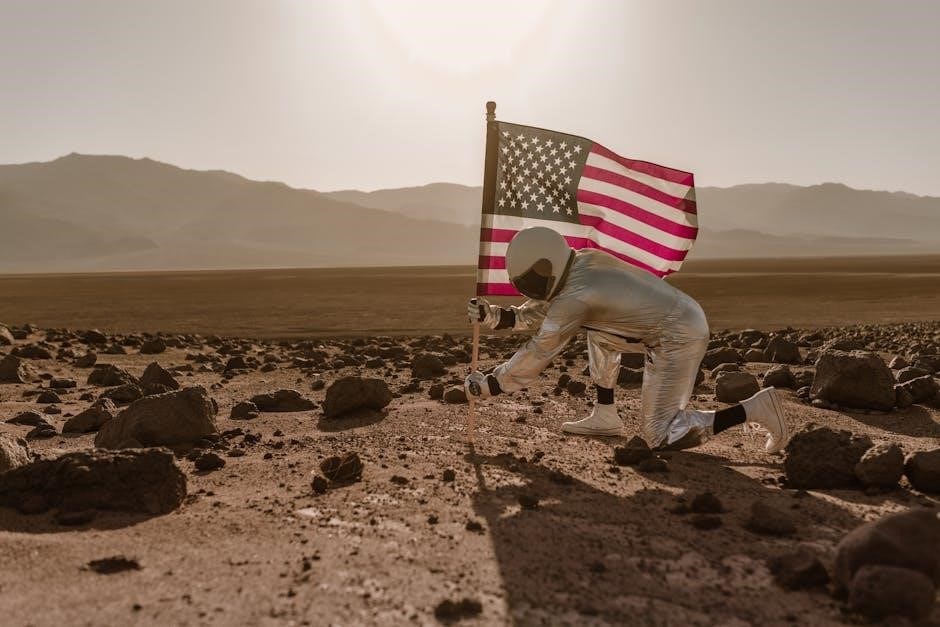
Global Context: Indigenous Peoples Worldwide
Indigenous struggles in the United States echo worldwide‚ with global resistance and efforts for self-determination and rights. International solidarity and advocacy highlight shared colonial histories and ongoing challenges.
9.1 Similar Struggles of Indigenous Peoples Globally
Indigenous peoples worldwide face similar struggles‚ including land theft‚ cultural suppression‚ and marginalization. From Canada to Australia‚ colonial histories have left deep scars. Global solidarity movements highlight shared resistance against oppression‚ advocating for self-determination and rights. International frameworks‚ like those from the United Nations‚ support Indigenous voices‚ emphasizing the universal fight for justice and recognition of ancestral lands and traditions.
9.2 International Recognition and Advocacy
Global solidarity among Indigenous peoples has sparked international advocacy efforts‚ with organizations like the United Nations championing their rights. The UN’s Sustainable Development Goals (SDGs) and Declaration on the Rights of Indigenous Peoples highlight their struggles. International recognition has amplified their voices‚ fostering global awareness of colonial histories and the ongoing fight for self-determination‚ land rights‚ and cultural preservation.
Roxanne Dunbar-Ortiz’s An Indigenous Peoples’ History offers a vital perspective‚ challenging traditional U.S. narratives and emphasizing the importance of Indigenous voices for justice and healing.
10.1 The Need for Inclusive Historical Narratives
Traditional U.S. historical narratives often exclude Indigenous voices‚ perpetuating stereotypes and erasing their resilience. Roxanne Dunbar-Ortiz’s work challenges this by centering Indigenous perspectives‚ revealing their resistance and survival strategies. Inclusive histories are essential for accuracy‚ fostering empathy‚ and dismantling Eurocentric frameworks. By prioritizing Indigenous voices‚ we move toward a more truthful understanding of the past and its impact on present-day justice.
10.2 Moving Forward: Reconciliation and Justice
True reconciliation requires acknowledging the historical injustices faced by Indigenous peoples‚ including genocide and land theft. By confronting these truths‚ the U.S. can work toward justice through policy changes‚ land restitution‚ and cultural preservation. Roxanne Dunbar-Ortiz’s work emphasizes the importance of amplifying Indigenous voices in this process‚ ensuring their rights and histories are recognized and respected in modern America.